Supply Chain
Bringing food from farm to table requires sophisticated and efficient supply chains. We work with food retail supply chain professionals to facilitate networking, surveys, benchmarking, and research studies that move the industry and the supply chain forward.SKU Rationalization: How Grocers Keep Shelves Stocked
Have you ever wondered how grocery stores determine which products to put on their shelves, or why you might find that certain items you used to buy are no longer available? If you see an empty shelf, it may not mean there’s a product shortage. Instead, it may be an example of SKU rationalization, a process by which food retailers and manufacturers manage their inventories to be able to offer their customers the most in-demand products or create shelf space for new and innovative items. In this video, we explain the process of SKU rationalization and why it’s not a cause for concern, but instead a regular part of the way grocery stores do business to better serve shoppers.
Supply Chain Blog Posts
What’s Coming Next? Supply Chain Realities in the Never Normal
Oct 26, 2023
The food industry continues to grapple with uncertainty, volatility, and change. As we continue to adapt to the "never normal," it's essential to reflect on the valuable lessons learned and explore the current supply chain landscape. At the 2023 FMI ...
Learn How to Lead Through Burnout
Aug 14, 2023
Speaker Erin Stafford will discuss the timely and highly relevant topic of burnout at the upcoming FMI Supply Chain Forum during the event's closing keynote ...
The Model Store: How Supply Chain Challenges and Sustainability are Driving Decisions
Jul 19, 2023
As the last few years have shown, it’s an ever-evolving operational climate for doing business. Food retailers building new stores or remodeling existing locations are simultaneously dealing with supply chain challenges and the drive toward ...
FMI Supply Chain Resources
Grocery Shopper Snapshot - February 2024
This brief report provides an update on shoppers' weekly grocery spend, evolving grocery habits and the role of technology in grocery shopping.
Boardroom Volume 9
This journal discusses food industry supply chain disruption, labor shortages and workforce challenges, technology transformation, changing marketplace and societal dynamics, evolving consumer behaviors, and rising ESG expectations.
Food Price Consistency at the Grocery Store
This fact sheet examines how the real prices of commodities like beef, pork and eggs have remained relatively flat over the last two decades, and ways the food industry is innovating to keep prices low for consumers.
Food Prices: The Value of Americans' Grocery Dollar Since 2001
This fact sheet outlines how despite inflationary increases and short-term price fluctuations, the real cost of groceries in America as a share of household income has remained remarkably consistent, and relatively flat, over the last two decades.
2023 Supply Chain Benchmarking Report
The report is designed to help companies and supply chain professionals understand the unique food industry supply chain ecosystem.
The Food Retailing Industry Speaks 2023
This report provides the food industry with important operational and financial benchmarks, as well as insights into strategic and tactical decisions among both food retailers and suppliers.
Russia-Ukraine Crisis and its Impact on Food Prices
These talking points outline the impact of the Russia-Ukraine Crisis on food prices.
Supply Chain in Focus: Challenges Facing the Grocery Supply Chain
These talking points outline supply chain challenges that have been facing the food industry since the onset of the pandemic.
2020 Supply Chain Benchmark – A Look Across the End to End Customer Value Chain
This benchmarking features critical supply, delivery and labor metrics and Key Performance Indicators (KPIs) from the 2020 whirlwind of a year.

Leadership
FMI's Supply Chain Committee helps plan educational conferences, including the selection of resources and training materials in the area of supply chain logistics, distribution and transportation.Learn More
FMI's Joint Industry Unsaleables Leadership Team helps the industry reduce the quantity and cost of unsaleables across the entire food, grocery and consumer packaged goods supply chain for the ultimate benefit of the consumer.
Learn More
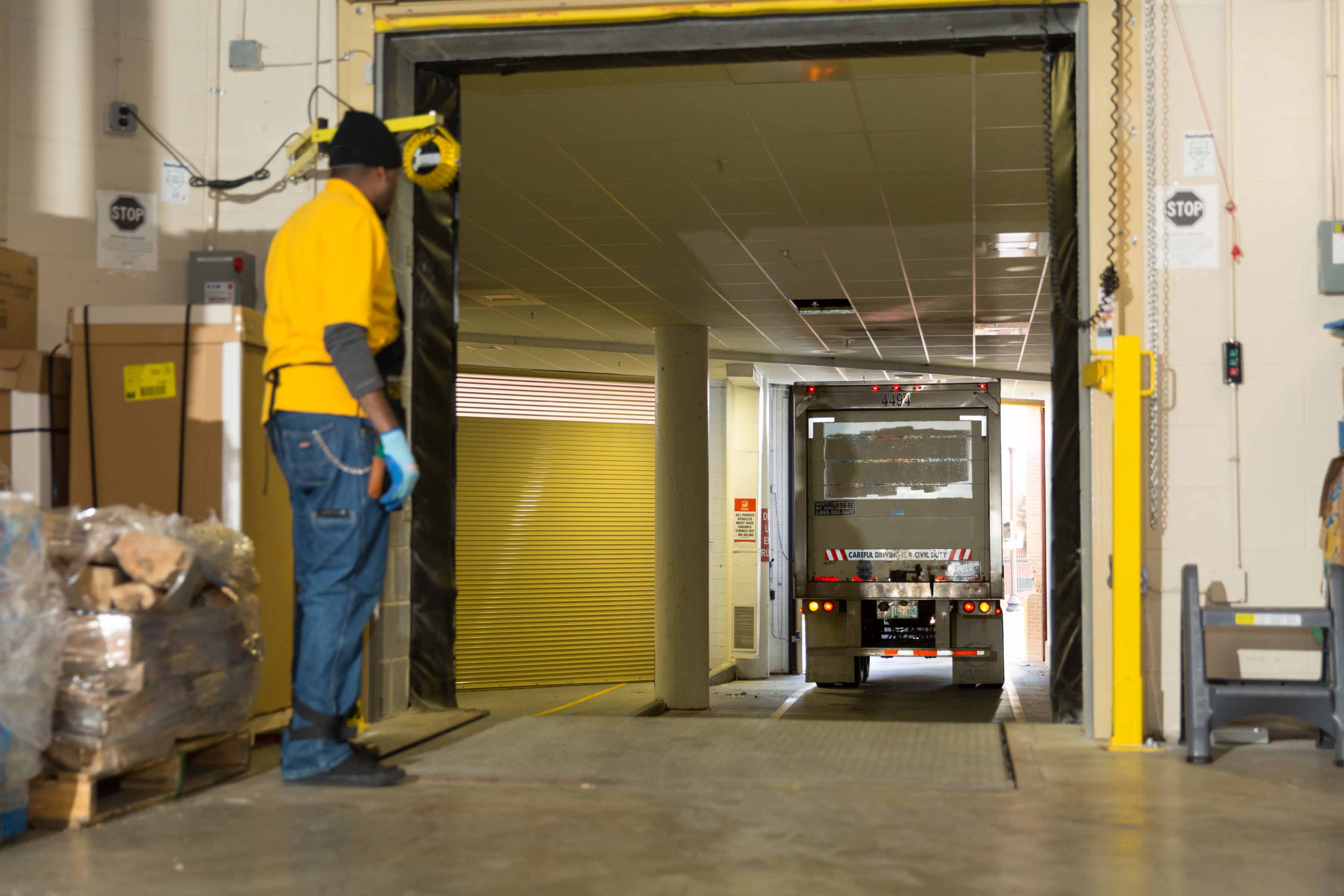
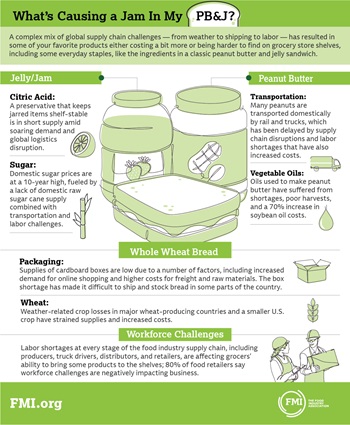


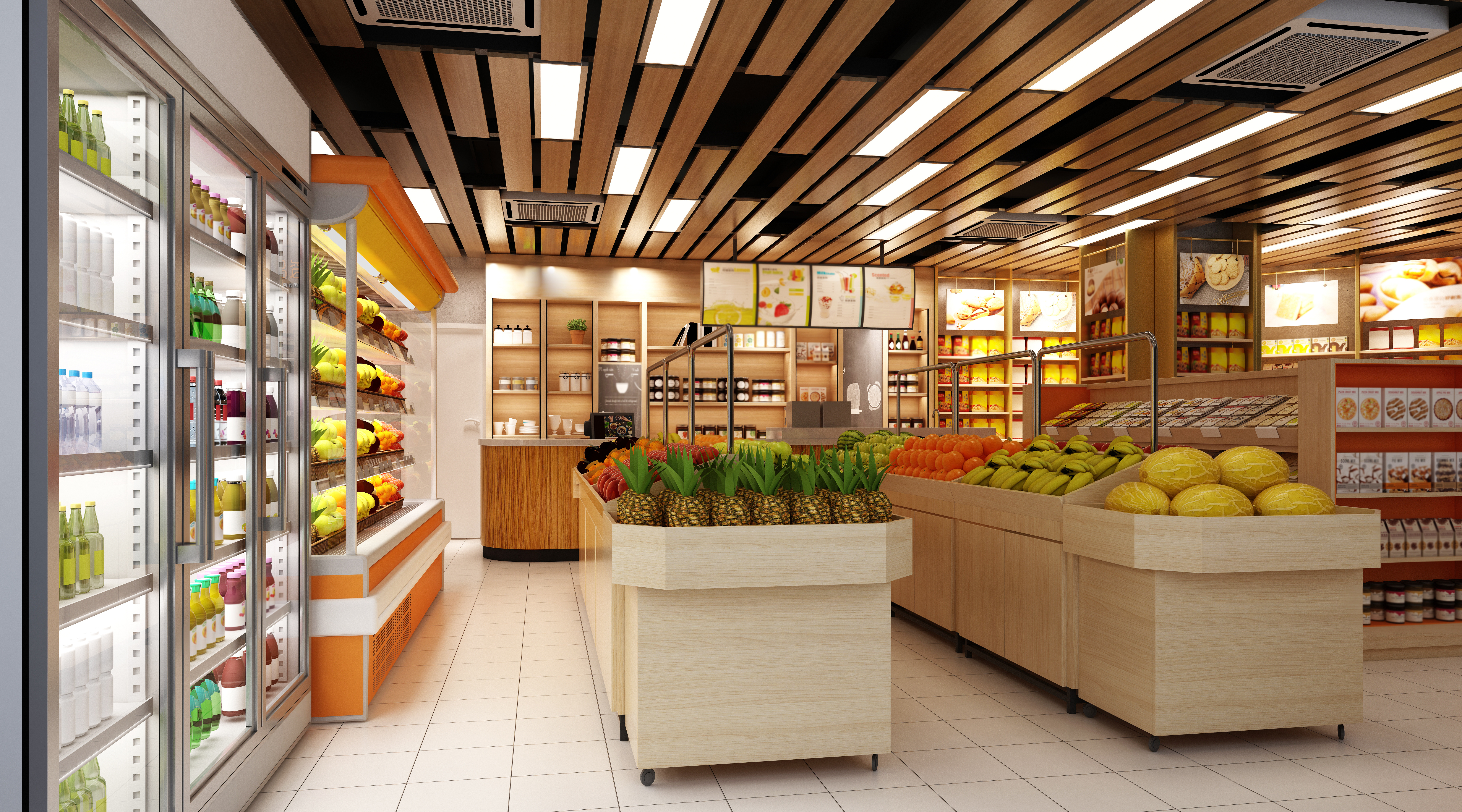

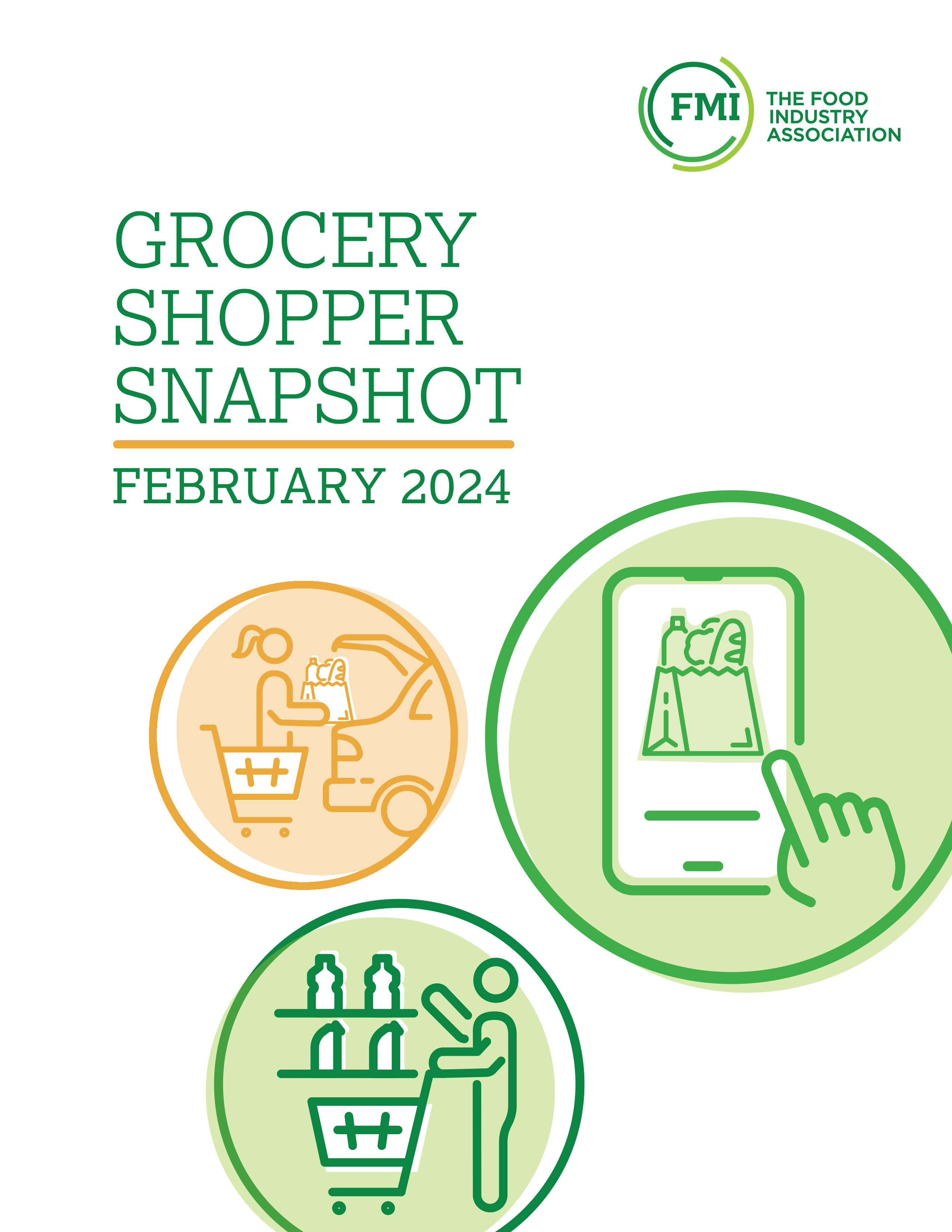

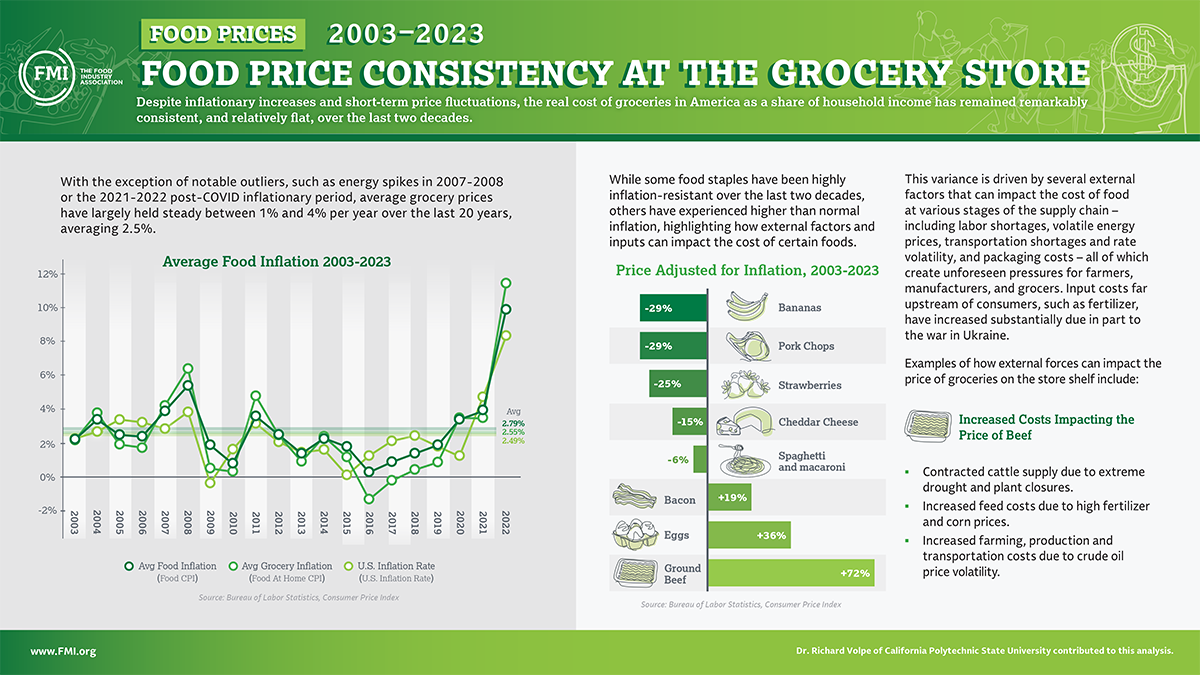
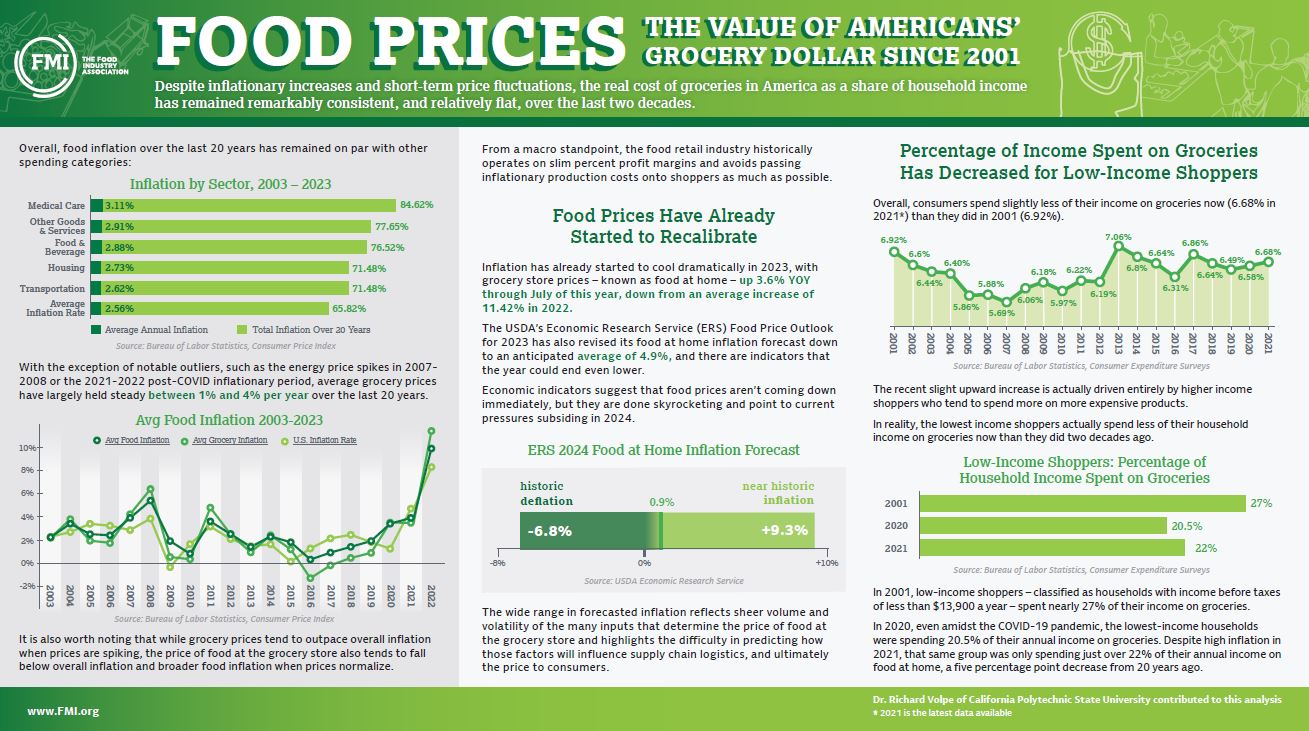
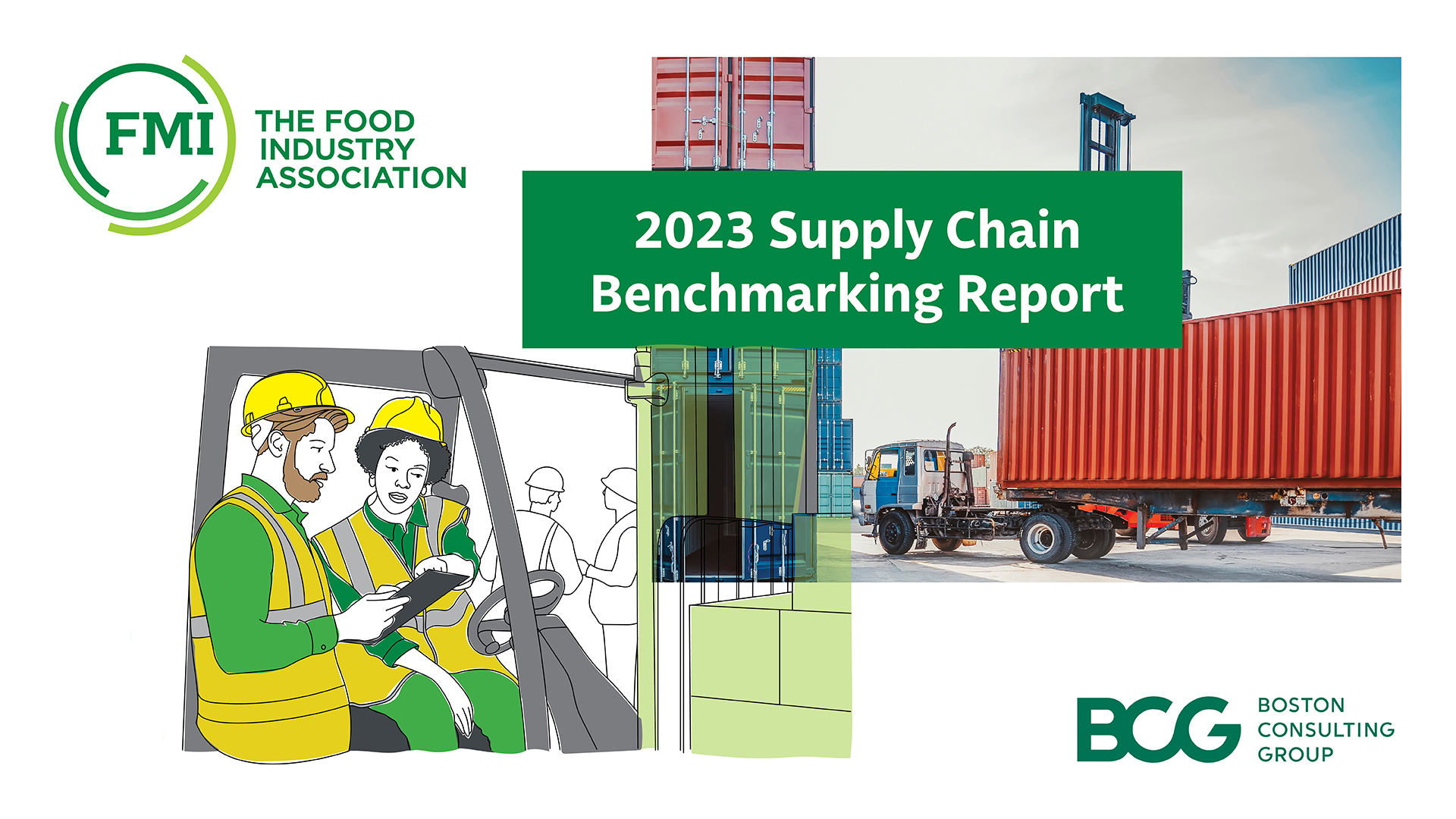
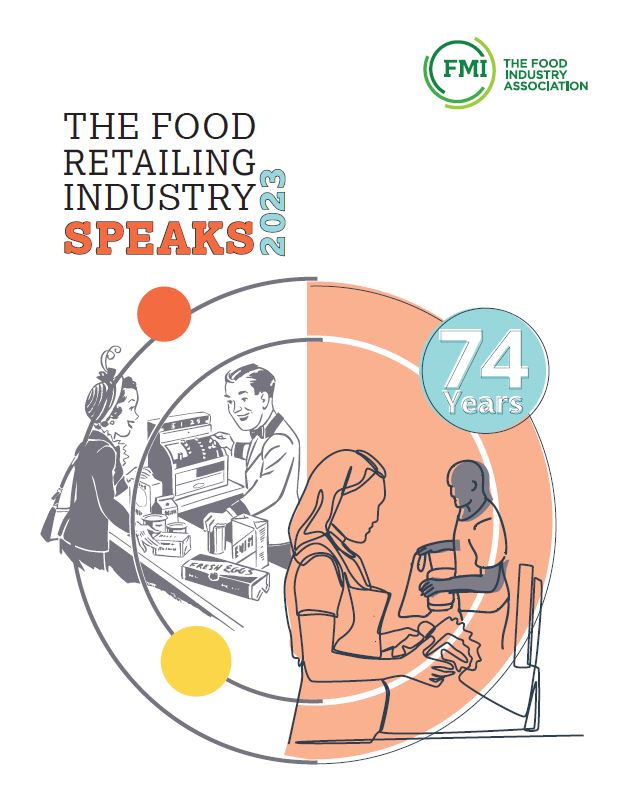
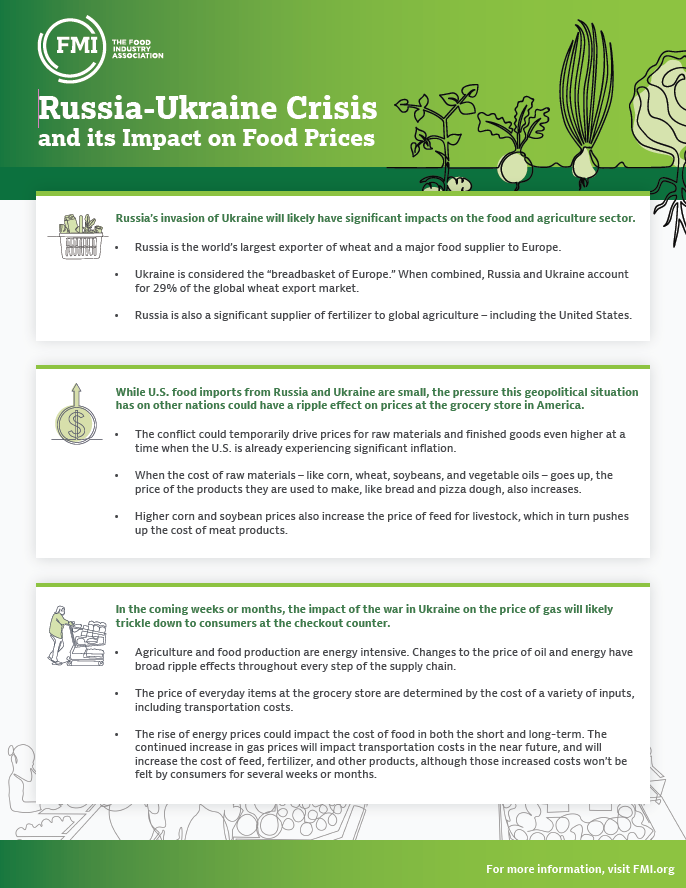
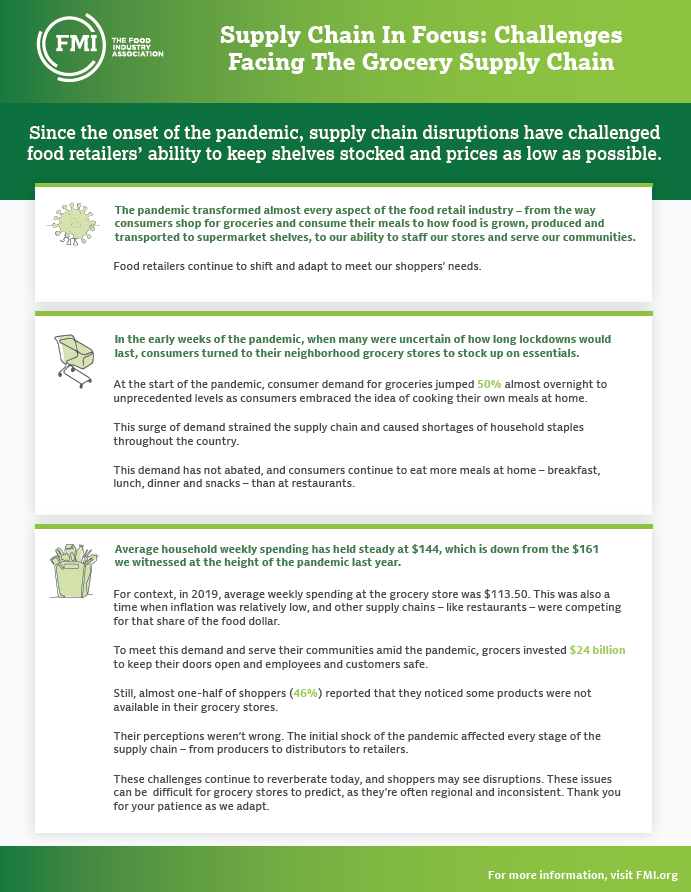
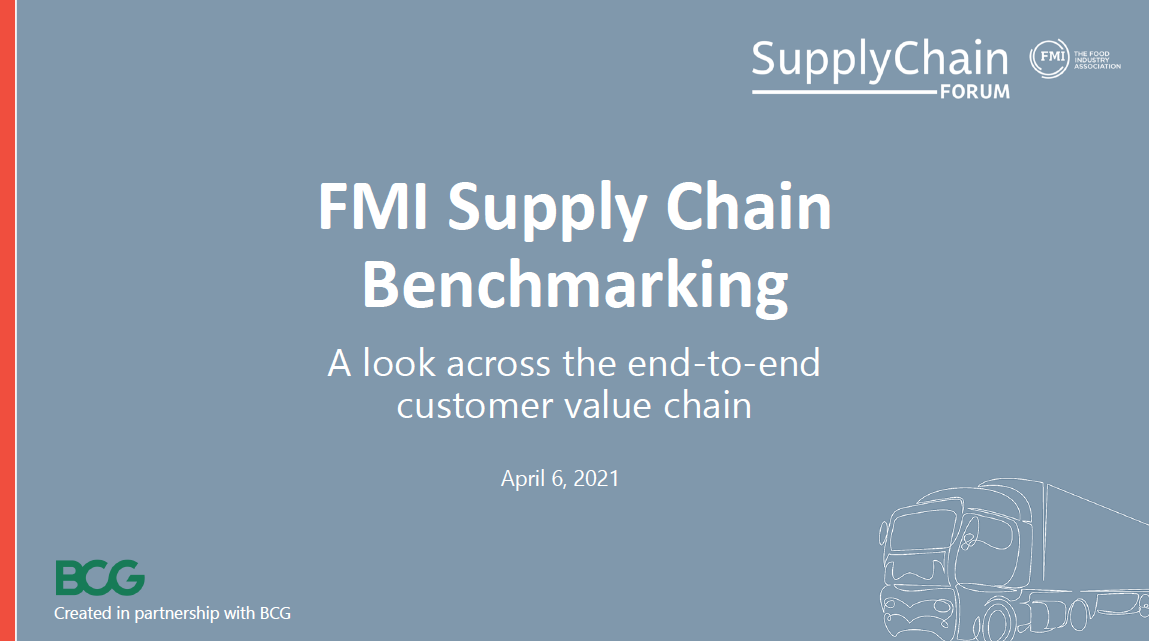

 Industry Topics address your specific area of expertise with resources, reports, events and more.
Industry Topics address your specific area of expertise with resources, reports, events and more.
 Our Research covers consumer behavior and retail operation benchmarks so you can make informed business decisions.
Our Research covers consumer behavior and retail operation benchmarks so you can make informed business decisions.
 Events and Education including online and in-person help you advance your food retail career.
Events and Education including online and in-person help you advance your food retail career.
 Food Safety training, resources and guidance that help you create a company food safety culture.
Food Safety training, resources and guidance that help you create a company food safety culture.
 Government Affairs work — federal and state — on the latest food industry policy, regulatory and legislative issues.
Government Affairs work — federal and state — on the latest food industry policy, regulatory and legislative issues.
 Get Involved. From industry awards to newsletters and committees, these resources help you take advantage of your membership.
Get Involved. From industry awards to newsletters and committees, these resources help you take advantage of your membership.
 Best practices, guidance documents, infographics, signage and more for the food industry on the COVID-19 pandemic.
Best practices, guidance documents, infographics, signage and more for the food industry on the COVID-19 pandemic.
